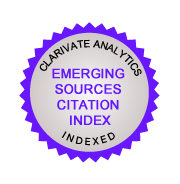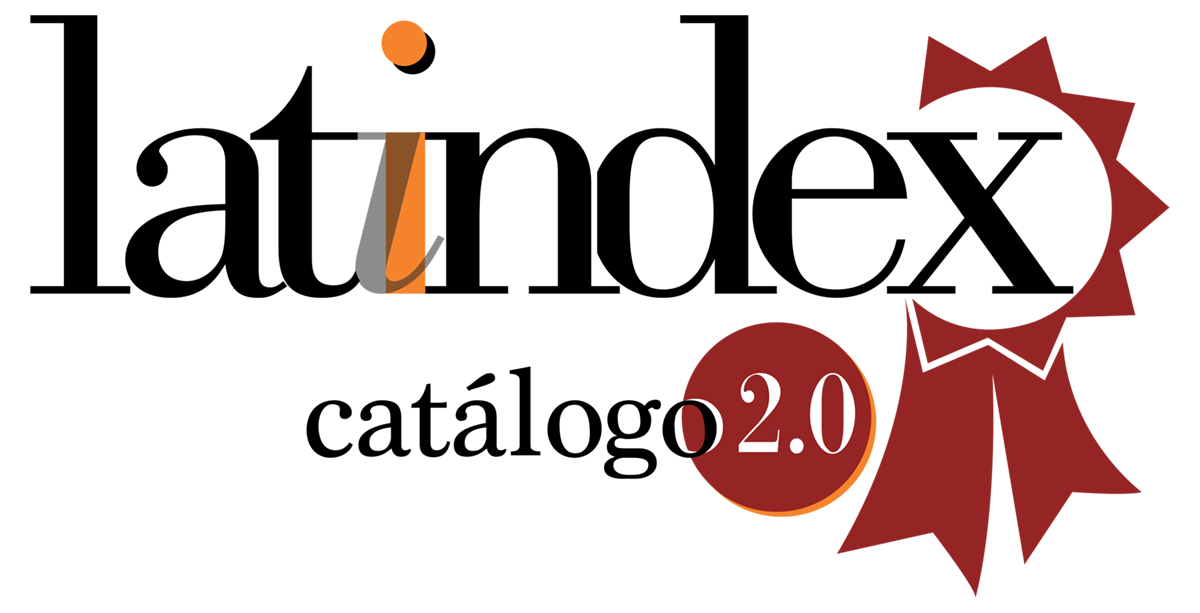Social representations of big data in the Argentinian digital press.
DOI:
https://doi.org/10.24215/16696581e726Keywords:
big data, social representations, argentinian press, artificial intelligenceAbstract
Abstract: In this work we investigate how social representations are built around big data in the Argentine press, giving an account of the imaginaries to which it resorts, the voices that stand out, and unraveling the myths and fantasies that it awakens and that contribute to its social acceptance. We are guided by Serge Moscovici's Theory of Social Representations, and we focus on the representation construction process. We work with a qualitative design aimed at content analysis of a news corpus (period 2010-2022) of Argentine digital media. Our results include the characterization of big data as a new era, objectifications around datasets and experts, anchors in knowledge and information management, and an ambivalent attitude towards big data. In the discussion we compare these results with others from foreign corpus, and with our own with different designs.
Downloads
References
Abric, J.-C. (1993). Central System, Peripheral System: Their functions and roles in the dynamics of social representations. Papers on Social Representations, 2(2), 75–78.
Auerbach, C., & Silverstein, L. B. (2003). Qualitative data: an introduction to coding and analysis. New York University Press.
boyd, D., & Crawford, K. (2012). Critical Questions for Big Data. Information, Communication & Society, 15(5), 662–679.
Castorina, J. (2016). La significación de la teoría de las representaciones sociales para la psicología. Perspectivas En Psicología, 13(1), 1–10. https://dialnet.unirioja.es/servlet/articulo?codigo=5523376
De Rosa, A. S. (2013). Social Representations in the ‘ Social Arena .’ Routledge.
Diebold, F. X. (2012). The Origin(s) and development of “ Big Data ”: the phenomenon , the term , and the discipline. Penn Economics Working Paper, 12. https://doi.org/10.2139/ssrn.2202843
Esposito, E. (2022). Artificial communication. How algorithms produce social intelligence. The MIT Press.
Glaser, B., & Strauss, A. (1967). The Discovery of Grounded Theory: Strategies for Qualitative Research. Aldine Publishing.
Jodelet, D. (1985). La representación social: fenómenos, conceptos y teoría. In S. Moscovici (Ed.), Psicología Social II (pp. 17–40). Paidós.
Kitchin, R. (2014). The Data Revolution: Big Data, Open Data, Data Infrastructures and Their Consequences. Sage. https://doi.org/10.4135/9781473909472
Kitchin, R., & Lauriault, T. P. (2014). Towards critical data studies : Charting and unpacking data assemblages and their work. Geoweb and Big Data, 1–19. http://papers.ssrn.com/sol3/papers.cfm?abstract_id=2474112
Kitchin, R., & McArdle, G. (2016). What makes Big Data, Big Data? Exploring the ontological characteristics of 26 datasets. Big Data and
Society, 3(1), 1–10. https://doi.org/10.1177/2053951716631130
Leonelli, S. (2020). Scientific Research and Big Data. Stanford Encyclopedia of Philosophy.
Luhmann, N. (2007). La sociedad de la sociedad. Herder / Universidad Iberoamericana.
Lupton, D. (2015). Digital Sociology. Routledge. https://doi.org/10.1057/9781137297792
Mayer-Schonberger, V., & Cukier, K. (2013). Big data. A revolution that whill transform how we live, work, and think. Eamon Dolan/Houghton Mifflin Harcourt.
McCarthy, M. T. (2016). The big data divide and its consequences. Sociology Compass, 10(12), 1131–1140. https://doi.org/10.1111/soc4.12436
Moscovici, S. (1979). El psicoanalisis, su imagen y su publico. Huemul.
Mozorov, E. (2015). La locura del solucionismo tecnológico. Clave Intelectual.
Paganoni, M. C. (2019). Framing big data : a linguistic and discursive approach. palgrave macmillan.
Pentzold, C., Brantner, C., & Fölsche, L. (2019). Imagining big data: Illustrations of “big data” in US news articles, 2010–2016. New Media & Society, 21(1), 139–167. https://doi.org/10.1177/1461444818791326
Pentzold, C., & Fischer, C. (2017). Framing Big Data: The discursive construction of a radio cell query in Germany. Big Data & Society, 4(2). https://doi.org/10.1177/2053951717745897
Portmess, L., & Tower, S. (2015). Data barns, ambient intelligence and cloud computing: the tacit epistemology and linguistic representation of Big Data. Ethics and Information Technology, 17(1), 1–9. https://doi.org/10.1007/s10676-014-9357-2
Puschmann, C., & Burgess, J. (2014). Metaphors of Big Data. International Journal of Communication, 8, 1690–1709.
Restrepo Ochoa, D. (2013). La Teoría Fundamentada como metodología para la integración del análisis procesual y estructural en la investigación de las Representaciones Sociales. Revista CES Psicología, 6(1), 122–133. https://doi.org/10.21615/2579
Sadowski, J. (2019). When data is capital: Datafication, accumulation, and extraction. Big Data and Society, 6(1), 1–12. https://doi.org/10.1177/2053951718820549
Srnicek, N. (2018). Capitalismo de plataformas. Caja Negra.
van Dijck, J. (2014). Datafication, dataism and dataveillance: Big data between scientific paradigm and ideology. Surveillance and Society, 12(2), 197–208.
Vasilachis de Gialdino, I. (2006). Estrategias de investigación cualitativa. Gedisa.
Wagner, W., & Hayes, N. (2011). El discurso de lo cotidiano y el sentido común. La teoría de las representaciones sociales. Anthropos.
Zuboff, S. (2015). Big other: Surveillance capitalism and the prospects of an information civilization. Journal of Information Technology, 30(1), 75–89. https://doi.org/10.1057/jit.2015.5
Downloads
Published
How to Cite
Issue
Section
License
La aceptación de un original por parte de la revista implica la cesión no exclusiva de los derechos patrimoniales de los/as autores/as en favor del editor, quien permite la reutilización, luego de su edición (postprint), bajo una Licencia Creative Commons Atribución-NoComercial-CompartirIgual 4.0 Internacional (CC BY-NC-SA 4.0)
Acorde a estos términos, el material se puede compartir (copiar y redistribuir en cualquier medio o formato) y adaptar (remezclar, transformar y crear a partir del material otra obra), siempre que a) se cite la autoría y la fuente original de su publicación (revista y URL de la obra), b) no se use para fines comerciales y c) se mantengan los mismos términos de la licencia.
La cesión de derechos no exclusivos implica que luego de su edición (postprint) en Question las/os autoras/es pueden publicar su trabajo en cualquier idioma, medio y formato; en tales casos, se solicita que se consigne que el material fue publicado originalmente en esta revista.
Tal cesión supone, también, la autorización de los/as autores/as para que el trabajo sea cosechado por SEDICI, el repositorio institucional de la Universidad Nacional de La Plata, y sea difundido en las bases de datos que el equipo editorial considere adecuadas para incrementar la visibilidad de la publicación y de sus autores/as.
Asimismo, la revista incentiva a las/os autoras/es para que luego de su publicación en Question depositen sus producciones en otros repositorios institucionales y temáticos, bajo el principio de que ofrecer a la sociedad la producción científica y académica sin restricciones contribuye a un mayor intercambio del conocimiento global.
















































